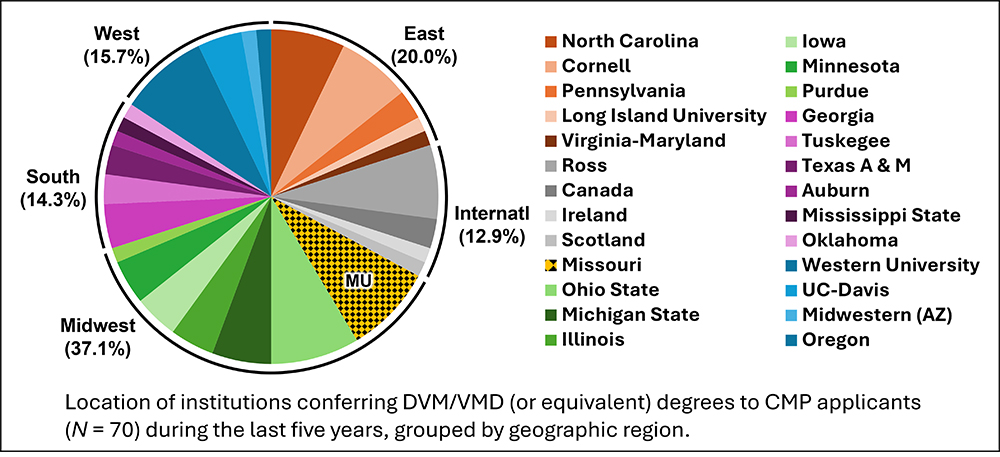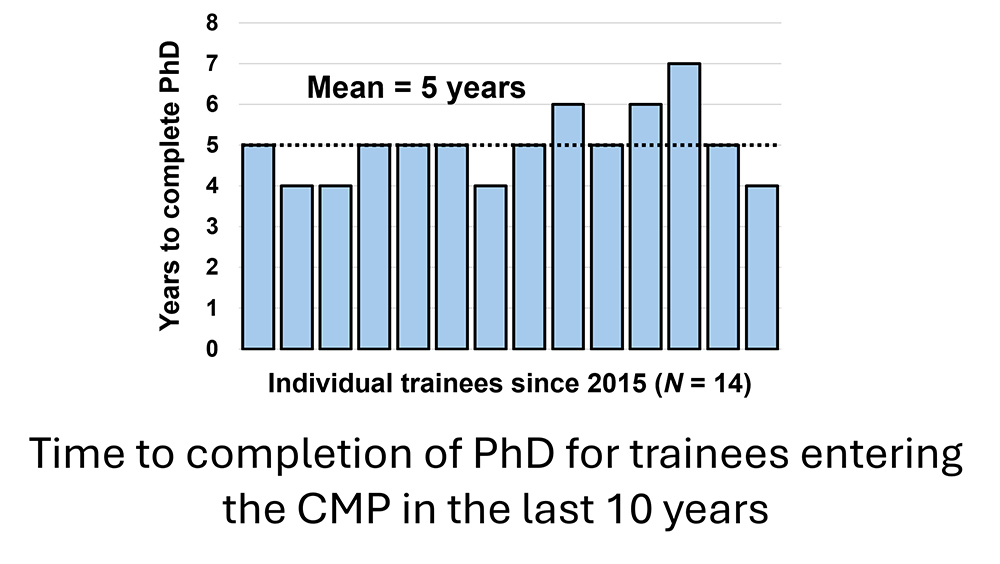Three trainee positions in the Comparative Medicine Program are supported by a NIH Ruth L. Kirschstein National Research Service Award (NRSA) T32 grant. The “Post-doctoral Training in Comparative Medicine” grant is the longest continuously funded T32 grant award at Mizzou. The goal of the training program is to produce veterinary scientists who initiate careers in research, become leaders in comparative medicine and meet the critical need for veterinarians as investigators in biomedical research.
Funds support trainees for up to three years of research training under the mentorship of an established funded researcher. Trainees are expected to design and perform a research project, prepare a grant proposal, present research results at national/international meetings and publish their findings in high-quality peer-reviewed journals. Training culminates with preparation and defense of a dissertation (PhD). On completion of the training program, trainees will have acquired the skills needed to become successful independent investigators whose unique training will position them to become leaders in the comparative medicine and greater biomedical research communities.
While the individuals chosen for NRSA-funding support are typically selected from residents in the MU Comparative Medicine Program who plan to pursue a PhD, any qualified individual with a DVM interested in pursuing a PhD is eligible and encouraged to apply.
For more information, contact:
Elizabeth Bryda, PhD
Co-PI, T32 Post-doctoral Training in Comparative Medicine
brydae@missouri.edu

Over the last 10 years (2015-25), there has been a 100% retention rate for NRSA-fund T32-supported trainees and 100% of trainees have completed a PhD.

The Comparative Medicine Program has a long history of producing veterinarians with advanced research training who have made important contributions to the biomedical community. Comparative Medicine Program alumni include NIH-funded investigators, leaders of research and development in research animal diagnostics with the discovery of novel pathogens and development of cutting-edge diagnostic methodologies, vice chancellors for large academic institutions, deans for colleges of veterinary medicine, directors of large animal resources for preeminent academic institutions, international pharmaceutical, biotech and contract research organizations.
Trainees who completed their programs in the past 10 years are making excellent contributions to the biomedical research community with two employed in academia in research-positions, one working as a biomedical research technician in academia, two employed by industry in research-support positions, one working in a research-related government setting and one currently pursuing post-doctoral opportunities in research. Thus, the Comparative Medicine Program continues to produce trainees with exceptional research credentials that result in advanced degrees (PhDs) and employment in and contribution to the biomedical research community.